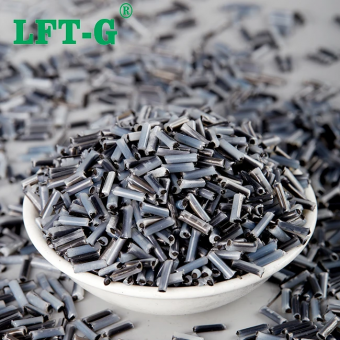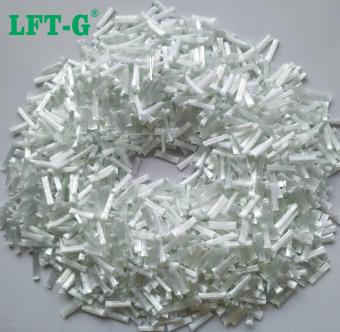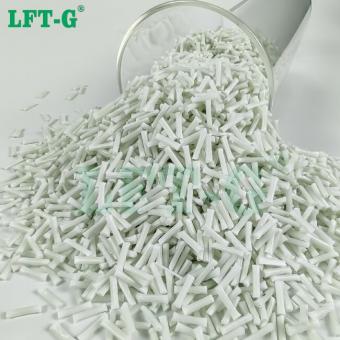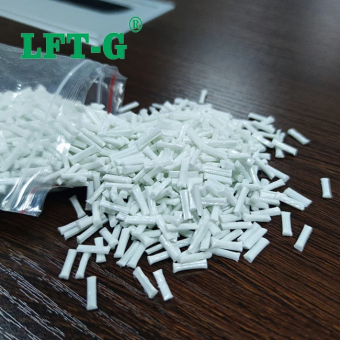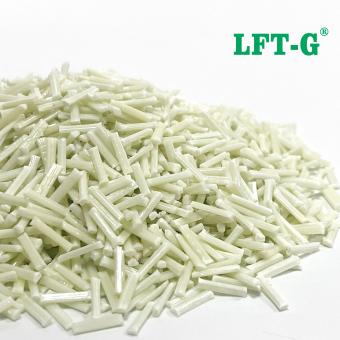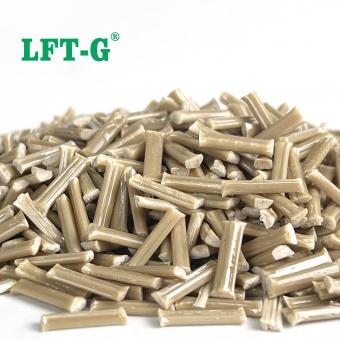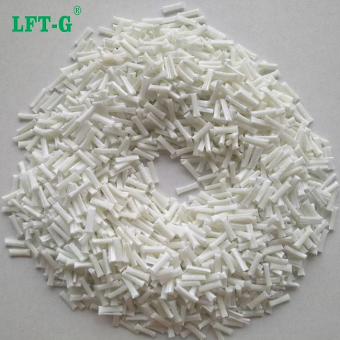-
pp long glass fiber polypropylenepp long glass fiber Polypropylene chips;
- Polypropylene PP Pellets
- raw materials PP resin
- Glass fiber filled
- Long fiber reinforced thermoplastics PP
- Polypropylene granules fiber reinforced pp
- pp gf30 chips
Tags :
-
virgin material pps long glass fiber reinforced thermoplstic for new energy separatorpolyphrnylene sulfide pps long glass fiber reinforced thermoplastic
- long fiber composites pps
- pps thermoplastic compound
- pps long glass fiber
- lft pps long fiber thermoplastic
- Long glass fiber pps polymer
- long fiber reinforced thermoplastics
Tags :
-
pps polyphenylene sulfide granules reinforced thermoplastic polymer lgf gf30polyphenylene sulfide long fiber reinforced thermoplastic pps granulesview more
-
pps resin price pps long glass fiber reinforced thermoplastic pps granulespolyphenylene sulfide pps long fiber reinforced thermoplastic pps granulesview more
-
PPS long fiber LFT enhance resistance pps for profilepolyphenylene sulfide long fiber reinforced thermoplastic pps granules has94-V0 flame retardant.view more
-
LFT reinforced composite Polyamide6 Long Glass Fiber 40%Filling specification: 40% (or between 20%-60%) Product grade: General grade (or Toughen resistant grade) Product feature: High toughness, fatigue resistance, low warpageview more
-
LFT-G brand PP LCF long carbon fiber 30% modified plastic higher strength original colorCarbon Fiber Reinforced Plastic Carbon fiber reinforced plastic composite (CFRP) is a lightweight, strong material that can be used to make a wide range of products used in everyday life. It is a term used to describe fiber reinforced composites with carbon fiber as the main structural component. Note that the "P" in CFRP can also stand for "plastic" rather than "polymer." Typically, CFRP composites use thermosetting resins such as epoxy, polyester, or vinyl esters. Despite the use of thermoplastic resins in CFRP composites, "carbon fiber reinforced thermoplastic composites" often uses its own acronym, CFRTP composites. LFT-G focuses on LFT&LFRT. Long Glass Fiber Series (LGF) & Long Carbon Fiber Series. Compared with Short Carbon Fiber, Long Carbon Fiber has more excellent performance in mechanical properties. It is more suitable for large products and structural parts. It has 1-3 times higher (toughness) than Short Carbon Fiber, and the tensile strength(strength and rigidity) is increased by 0.5-1 times. Properties of CFRP composites Composites reinforced with carbon fiber are different from other FRP composites that use traditional materials such as glass fiber or arylon fiber. Advantages of CFRP composites include: Light weight: Conventional fiberglass reinforced composites using continuous fiberglass and 70% fiberglass (glass weight/gross weight) typically have a density of 0.065 lb/cubic inch. A CFRP composite with the same 70% fiber weight might typically have a density of 0.055 lb/cubic inch. Increased strength: Carbon fiber composites not only weigh less, but CFRP composites are stronger and stiffer per unit weight. This is true when comparing carbon fiber composites to glass fibers, and even more so when comparing metals. For example, when comparing steel to CFRP composites, a good rule of thumb is that a carbon fiber structure of the same strength typically weighs 1/5 as steel. You can imagine why car companies are looking into using carbon fiber instead of steel. When comparing CFRP composites to aluminum (one of the lightest metals used), the standard assumption is that an aluminum structure of the same strength might weigh 1.5 times as much as a carbon fiber structure. Of course, there are many variables that can change this comparison. Grades and qualities of materials may vary, and for composites, the manufacturing process, fiber structure and quality need to be considered. Disadvantages of CFRP composites Cost: As amazing as the material is, there's a reason carbon fiber can't be used in every situation. Currently, the cost of CFRP composites is too high in many cases. Depending on current market conditions (supply and demand), the type of carbon fiber (aerospace grade versus commercial grade), and bundle size, carbon fiber prices can vary significantly. On a per-pound basis, carbon fiber can cost anywhere from five to 25 times more than fiberglass. The difference is even greater when comparing steel with CFRP composites. Electrical conductivity: This can be a plus or minus for carbon fiber composites, depending on the application. Carbon fiber is extremely conductive, while glass fiber is insulating. Many applications use fiberglass instead of carbon fiber or metal, strictly because of electrical conductivity. For example, in the utility industry, many products require the use of fiberglass. This is one of the reasons why the ladder uses fiberglass as the ladder rail. The chance of electric shock is much lower if the fiberglass ladder comes into contact with the power cord. The situation with CFRP ladders is different. Although the cost of CFRP composites remains high, new technological advances in manufacturing are continuing to provide more cost effective products. Application of PP-LCF Long Carbon Fiber as the reinforcement material of CFRP, its proportion is only 1/4 of iron, specific strength is 10 times that of iron, elastic modulus is 7 times that of iron, carbon fiber excellent physical properties are played in various fields from sports goods to aircraft. Details of product Number Length Color Sample Package Delivery time Port of Loading Freight PP-NA-LCF30 5-25mm Original color (can be customized) Available 20kg a bag 7-15days after shipment Xiamen Port Depending on your destination Related products PA6-LCF PA66-LCF About Xiamen LFT Composite plastic Co., Ltd. A new material enterprise that develops and produces its own brand of LFT long glass fiber and long carbon fiber. It fills the blank of domestic high-end long carbon fiber LFT materials, and is more customized and shortened the production cycle compared with foreign companies. In addition, our company has sales and service offices in Zhejiang, Jiangsu, Guangzhou, Chongqing, etc. ...
- Long fiber reinforced thermoplastics
- Modified materials of long carbon fiber
- Homopolymer long carbon fiber PP
- The modified PP
- Long carbon fiber filling plastic
- LFT-G brand materials
Tags :
-
Xiamen LFT PPC reinforced long carbon fiber 12mm higher mechanical properties natural black best priceWhat is the PP-LCF? Polypropylene is a kind of polymer material with low cost, excellent performance and wide application. By carbon fiber reinforcement, the strength, heat deflection temperature and dimensional stability of polypropylene materials can be improved, which expands the application fields of polypropylene materials and is widely used in electronic appliances, automobiles and other fields. Especially in the automotive field, with the development of new energy vehicles and in the trend of automotive lightweighting, carbon fiber reinforced materials are more and more widely used in the automotive field. What is the advantages of PP-LCF? The modified polypropylene material reinforced by carbon fiber has a series of advantages such as light weight, high modulus, high specific strength, low coefficient of thermal expansion, high temperature resistance, heat and impact resistance, corrosion resistance, and good vibration absorption. The datasheet was test by us, for reference only. What is the application of PP-LCF? High mechanical performance Meet the design trend of new energy vehicles Lower density meets the demand for lighter weight vehicles Other materials you may wonder PA6-LCF PA12-LCF PPS-LCF Test Processing Certifications Quality Management System ISO9001/16949 Certification National Laboratory Accreditation Certificate Modified Plastics Innovation Enterprise Honorary Certificate Heavy metal REACH & ROHS testing Contact us
- Long carbon fiber Reinforced Polypropylene for electrial accessories
- self owing pp pellets
- ppo granules
- carbone fiber reinforced pp pellets
- pp modified granules manufacturer
- Long fiber reinforced thermoplastics PPO
Tags :
-
LFT-G TPU filled LGF 20%-60% lightweight for auto partsWhat is composites materials? ▶ Composite materials consist of two or more material components with different chemical and physical properties, combined in the designed form, proportion, and distribution, with obvious interfaces existing between the components; and ▶ Composite materials have structural designability, composite structure design can be carried out; not only to maintain the advantages of the performance of each component material, but also through the performance of each component complementary and related can be obtained by a single component material can not achieve the comprehensive performance. TPU composite materials have been widely used in various industries. LFT-G® TPU-NA-LGF It is a high-strength engineering composite material made of 80%-40% Baidu® high-performance polyurethane resins and 20%-60% glass fibers, produced by extrusion or injection molding process. Higher mechanical properties High glass fiber content leads to further improvement of the mechanical properties of the composites More uniform distribution of fibers in the composite material, more stable performance Injection molding process Datasheet we made for your reference More details please contacr us Application fields of TPU-NA-LGF Why choose Xiamen LFT-G? ▶Fast curing for improved productivity ▶Low viscosity, good fiberglass wettability ▶High stability, good product quality About Xiamen LFT composites plastic Co., Ltd. Xiamen LFT Composite Plastic Co.,LTD was established in 2009, is a brand-name global suppliers of long fiber reinforced thermoplastic materials integrating product research & development(R&D), production and sale marketing. Our LFT products have passed the ISO9001&16949 system certification and have obtained lots of national trademarks and patents, covering the fields of automotive, military parts and firearms, aerospace, new energy, medical equipment, power wind energy, sports equipment, etc.
- general grade TPU made by own factory
- green materials TPU raw materials
- long glass fiber compounds tpu modification
- TPU composite plastic
- anti-creep TPU plastic home appliance parts
Tags :
-
LFT-G Polypropylene long carbon fiber modified plastic higher strength original color for car partsCarbon Fiber Reinforced Plastic Carbon fiber reinforced plastic composite (CFRP) is a lightweight, strong material that can be used to make a wide range of products used in everyday life. It is a term used to describe fiber reinforced composites with carbon fiber as the main structural component. Note that the "P" in CFRP can also stand for "plastic" rather than "polymer." Typically, CFRP composites use thermosetting resins such as epoxy, polyester, or vinyl esters. Despite the use of thermoplastic resins in CFRP composites, "carbon fiber reinforced thermoplastic composites" often uses its own acronym, CFRTP composites. LFT-G focuses on LFT&LFRT. Long Glass Fiber Series (LGF) & Long Carbon Fiber Series. Compared with Short Carbon Fiber, Long Carbon Fiber has more excellent performance in mechanical properties. It is more suitable for large products and structural parts. It has 1-3 times higher (toughness) than Short Carbon Fiber, and the tensile strength(strength and rigidity) is increased by 0.5-1 times. Properties of CFRP composites Composites reinforced with carbon fiber are different from other FRP composites that use traditional materials such as glass fiber or arylon fiber. Advantages of CFRP composites include: Light weight: Conventional fiberglass reinforced composites using continuous fiberglass and 70% fiberglass (glass weight/gross weight) typically have a density of 0.065 lb/cubic inch. A CFRP composite with the same 70% fiber weight might typically have a density of 0.055 lb/cubic inch. Increased strength: Carbon fiber composites not only weigh less, but CFRP composites are stronger and stiffer per unit weight. This is true when comparing carbon fiber composites to glass fibers, and even more so when comparing metals. For example, when comparing steel to CFRP composites, a good rule of thumb is that a carbon fiber structure of the same strength typically weighs 1/5 as steel. You can imagine why car companies are looking into using carbon fiber instead of steel. When comparing CFRP composites to aluminum (one of the lightest metals used), the standard assumption is that an aluminum structure of the same strength might weigh 1.5 times as much as a carbon fiber structure. Of course, there are many variables that can change this comparison. Grades and qualities of materials may vary, and for composites, the manufacturing process, fiber structure and quality need to be considered. Disadvantages of CFRP composites Cost: As amazing as the material is, there's a reason carbon fiber can't be used in every situation. Currently, the cost of CFRP composites is too high in many cases. Depending on current market conditions (supply and demand), the type of carbon fiber (aerospace grade versus commercial grade), and bundle size, carbon fiber prices can vary significantly. On a per-pound basis, carbon fiber can cost anywhere from five to 25 times more than fiberglass. The difference is even greater when comparing steel with CFRP composites. Electrical conductivity: This can be a plus or minus for carbon fiber composites, depending on the application. Carbon fiber is extremely conductive, while glass fiber is insulating. Many applications use fiberglass instead of carbon fiber or metal, strictly because of electrical conductivity. For example, in the utility industry, many products require the use of fiberglass. This is one of the reasons why the ladder uses fiberglass as the ladder rail. The chance of electric shock is much lower if the fiberglass ladder comes into contact with the power cord. The situation with CFRP ladders is different. Although the cost of CFRP composites remains high, new technological advances in manufacturing are continuing to provide more cost effective products. Application of PP-LCF Long Carbon Fiber as the reinforcement material of CFRP, its proportion is only 1/4 of iron, specific strength is 10 times that of iron, elastic modulus is 7 times that of iron, carbon fiber excellent physical properties are played in various fields from sports goods to aircraft. Details of product Number Length Color Sample Package Delivery time Port of Loading Freight PP-NA-LCF30 5-25mm Original color (can be customized) Available 20kg a bag 7-15days after shipment Xiamen Port Depending on your destination Related products PA6-LCF PA66-LCF About Xiamen LFT Composite plastic Co., Ltd. A new material enterprise that develops and produces its own brand of LFT long glass fiber and long carbon fiber. It fills the blank of domestic high-end long carbon fiber LFT materials, and is more customized and shortened the production cycle compared with foreign companies. In addition, our company has sales and service offices in Zhejiang, Jiangsu, Guangzhou, Chongqing, etc. ...
- The modified PP thermoplastics
- Long carbon fiber filling plastic machinery
- LFT-G brand materials translucent parts, housewares, furniture PP
Tags :
-
Xiamen LFT Polypropylene add long carbon fiber modified plastic higher strength and rigidityCarbon Fiber Reinforced Plastic Carbon fiber reinforced plastic composite (CFRP) is a lightweight, strong material that can be used to make a wide range of products used in everyday life. It is a term used to describe fiber reinforced composites with carbon fiber as the main structural component. Note that the "P" in CFRP can also stand for "plastic" rather than "polymer." Typically, CFRP composites use thermosetting resins such as epoxy, polyester, or vinyl esters. Despite the use of thermoplastic resins in CFRP composites, "carbon fiber reinforced thermoplastic composites" often uses its own acronym, CFRTP composites. LFT-G focuses on LFT&LFRT. Long Glass Fiber Series (LGF) & Long Carbon Fiber Series. Compared with Short Carbon Fiber, Long Carbon Fiber has more excellent performance in mechanical properties. It is more suitable for large products and structural parts. It has 1-3 times higher (toughness) than Short Carbon Fiber, and the tensile strength(strength and rigidity) is increased by 0.5-1 times. Properties of CFRP composites Composites reinforced with carbon fiber are different from other FRP composites that use traditional materials such as glass fiber or arylon fiber. Advantages of CFRP composites include: Light weight: Conventional fiberglass reinforced composites using continuous fiberglass and 70% fiberglass (glass weight/gross weight) typically have a density of 0.065 lb/cubic inch. A CFRP composite with the same 70% fiber weight might typically have a density of 0.055 lb/cubic inch. Increased strength: Carbon fiber composites not only weigh less, but CFRP composites are stronger and stiffer per unit weight. This is true when comparing carbon fiber composites to glass fibers, and even more so when comparing metals. For example, when comparing steel to CFRP composites, a good rule of thumb is that a carbon fiber structure of the same strength typically weighs 1/5 as steel. You can imagine why car companies are looking into using carbon fiber instead of steel. When comparing CFRP composites to aluminum (one of the lightest metals used), the standard assumption is that an aluminum structure of the same strength might weigh 1.5 times as much as a carbon fiber structure. Of course, there are many variables that can change this comparison. Grades and qualities of materials may vary, and for composites, the manufacturing process, fiber structure and quality need to be considered. Disadvantages of CFRP composites Cost: As amazing as the material is, there's a reason carbon fiber can't be used in every situation. Currently, the cost of CFRP composites is too high in many cases. Depending on current market conditions (supply and demand), the type of carbon fiber (aerospace grade versus commercial grade), and bundle size, carbon fiber prices can vary significantly. On a per-pound basis, carbon fiber can cost anywhere from five to 25 times more than fiberglass. The difference is even greater when comparing steel with CFRP composites. Electrical conductivity: This can be a plus or minus for carbon fiber composites, depending on the application. Carbon fiber is extremely conductive, while glass fiber is insulating. Many applications use fiberglass instead of carbon fiber or metal, strictly because of electrical conductivity. For example, in the utility industry, many products require the use of fiberglass. This is one of the reasons why the ladder uses fiberglass as the ladder rail. The chance of electric shock is much lower if the fiberglass ladder comes into contact with the power cord. The situation with CFRP ladders is different. Although the cost of CFRP composites remains high, new technological advances in manufacturing are continuing to provide more cost effective products. Application of PP-LCF Long Carbon Fiber as the reinforcement material of CFRP, its proportion is only 1/4 of iron, specific strength is 10 times that of iron, elastic modulus is 7 times that of iron, carbon fiber excellent physical properties are played in various fields from sports goods to aircraft. Details of product Number Length Color Sample Package Delivery time Port of Loading Freight PP-NA-LCF30 5-25mm Original color (can be customized) Available 20kg a bag 7-15days after shipment Xiamen Port Depending on your destination Related products PA6-LCF PA66-LCF About Xiamen LFT Composite plastic Co., Ltd. A new material enterprise that develops and produces its own brand of LFT long glass fiber and long carbon fiber. It fills the blank of domestic high-end long carbon fiber LFT materials, and is more customized and shortened the production cycle compared with foreign companies. In addition, our company has sales and service offices in Zhejiang, Jiangsu, Guangzhou, Chongqing, etc. ...
- The modified PP high performance
- Long carbon fiber filling plastic PP car part use
- LFT-G brand materials pp polymer chemical resistance
Tags :
-
Xiamen LFT reinforcement Polypropylene long glass fiber modifiedLong glass fiber reinforcement thermoplastic polypropylene resin
- Long fiber reinforced thermoplastics composite PP
- metal replacement PP polymer glass fiber reinforced
- High fatigue and creep endurance
- China manufacturer Polypropylene good price
- long glass fiber modified PP for car parts gfrp PP GF30
- higher performance than short/chopped glass fiber filled compounds.
Tags :

 e-mail
e-mail English
English français
français Deutsch
Deutsch русский
русский italiano
italiano español
español português
português العربية
العربية 日本語
日本語 한국의
한국의 中文
中文





